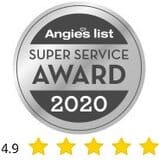Seattle & Everett Integrated Pest Management (IPM)
What is IPM?
Integrated pest management (IPM), also known as integrated pest control (IPC) is a broad-based approach that integrates practices for economic control of pests. IPM aims to suppress pest populations below the economic injury level (EIL). Source: Wikipedia
The Future of Integrated Pest Management
In the past, it was believed that the most effective pest control came from the heavy spraying of an entire structure. The goal was to do whatever it took to completely eliminate the pest problem. Both PCOs and customers believed the more products applied the better, as reported in a study conducted by Zocon.
Now the industry is shifting to the use of a variety of treatments. Zocon’s study showed PCOs are using alternative treatment methods in response to legislative and environmental pressure, greater safety and liability issues, better-informed customers and the popularity of improved treatment strategies. These factors are leading PCOs to convert to some form of Integrated Pest Management (IPM).
Effective IPM involves inspection, exclusion, sanitation, monitoring, and documentation. In some situations, baiting, vacuuming, dusting or the use of dilutables or insect growth regulators (IGRs) may be needed.
Research revealed that PCOs believe they have a “toolbox” of pest control products and strategies to choose from when creating an account. With the trend toward greater use of IPM, a toolbox of products and strategies is vital to a PCO’s success, because each account is different in terms of regulations, customer mindset and level of infestation.
What does this mean for the future of integrated pest management?
Constant improvement will be the goal of legislation on the use of pesticides becomes stricter. In addition, the emphasis on safety and liability continues to increase, as customers continue to learn about pest control and demand more options. PCOs will need to maintain effective pest control using fewer, safer products in a less obtrusive manner. The challenge for PCOs will be to choose the right product at the right time for maximum effectiveness. Simply reacting to pest problems will not be acceptable. PCOs will need to anticipate pest problems and take steps to avoid or prevent them. That means constant pest inspections and monitoring should be done to detect problems in the early stages.
Still, have questions about Eagle Pest Eliminators IPM?
130+ Reviews, avg 4.7 stars
We need help with…
Get A Quote Today
We’ll get back to you within 1 business day. We look forward to speaking with you!












